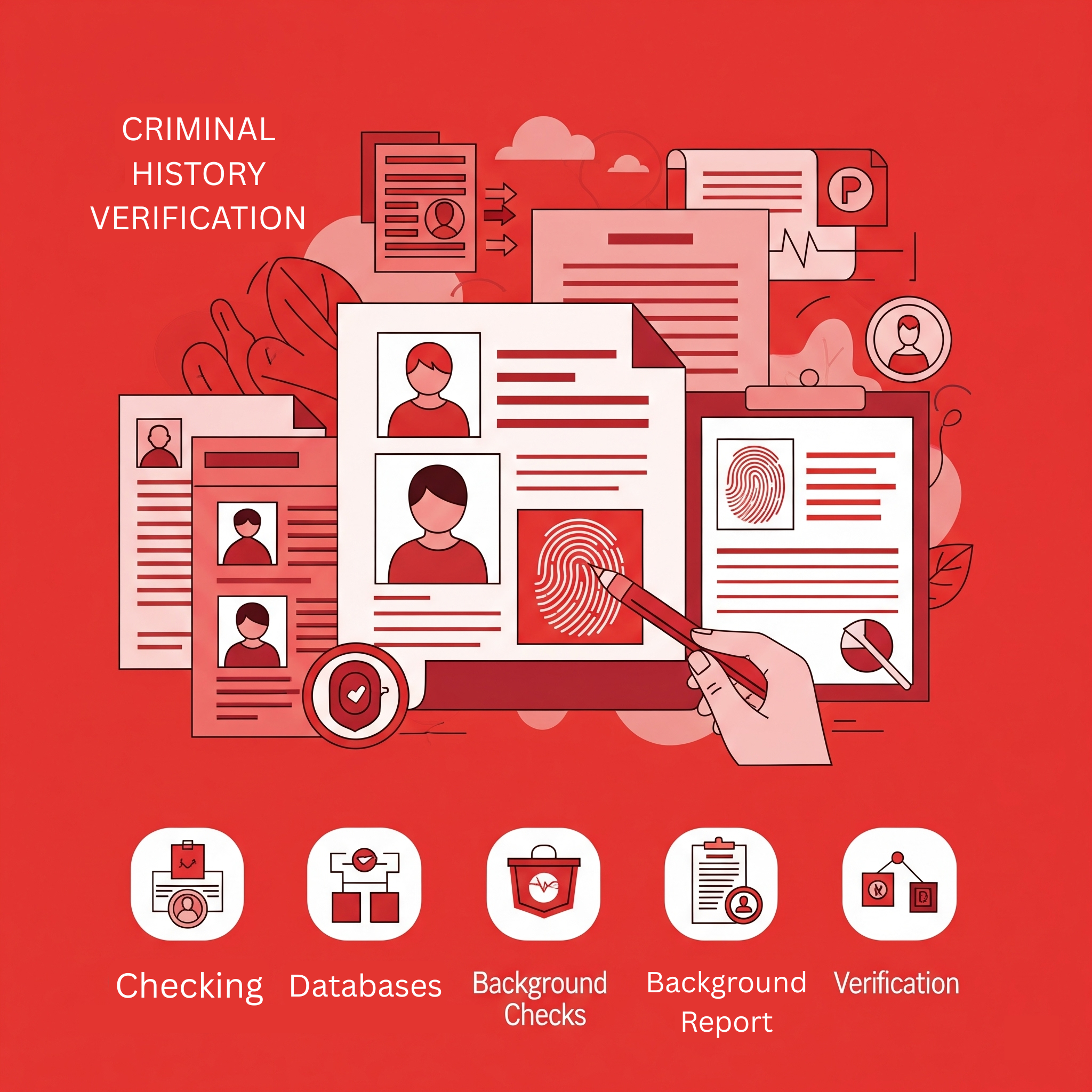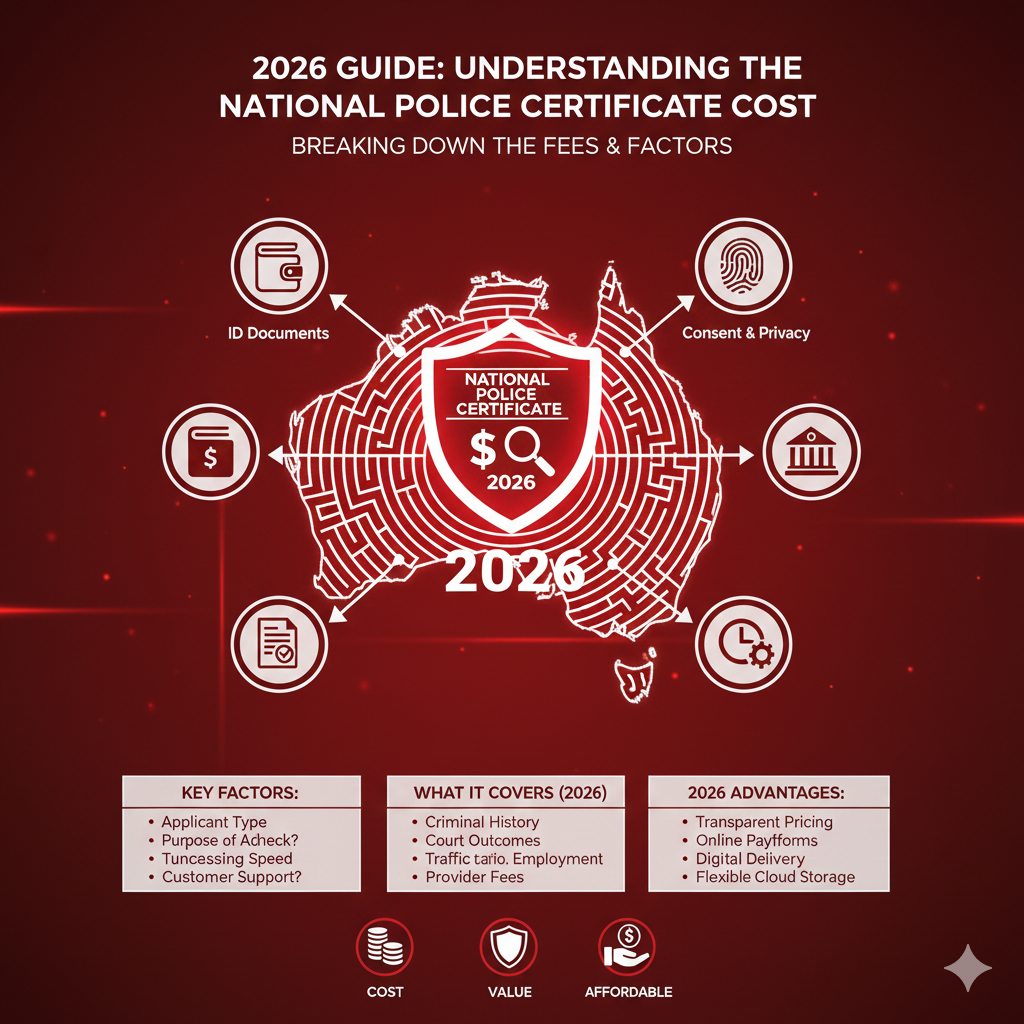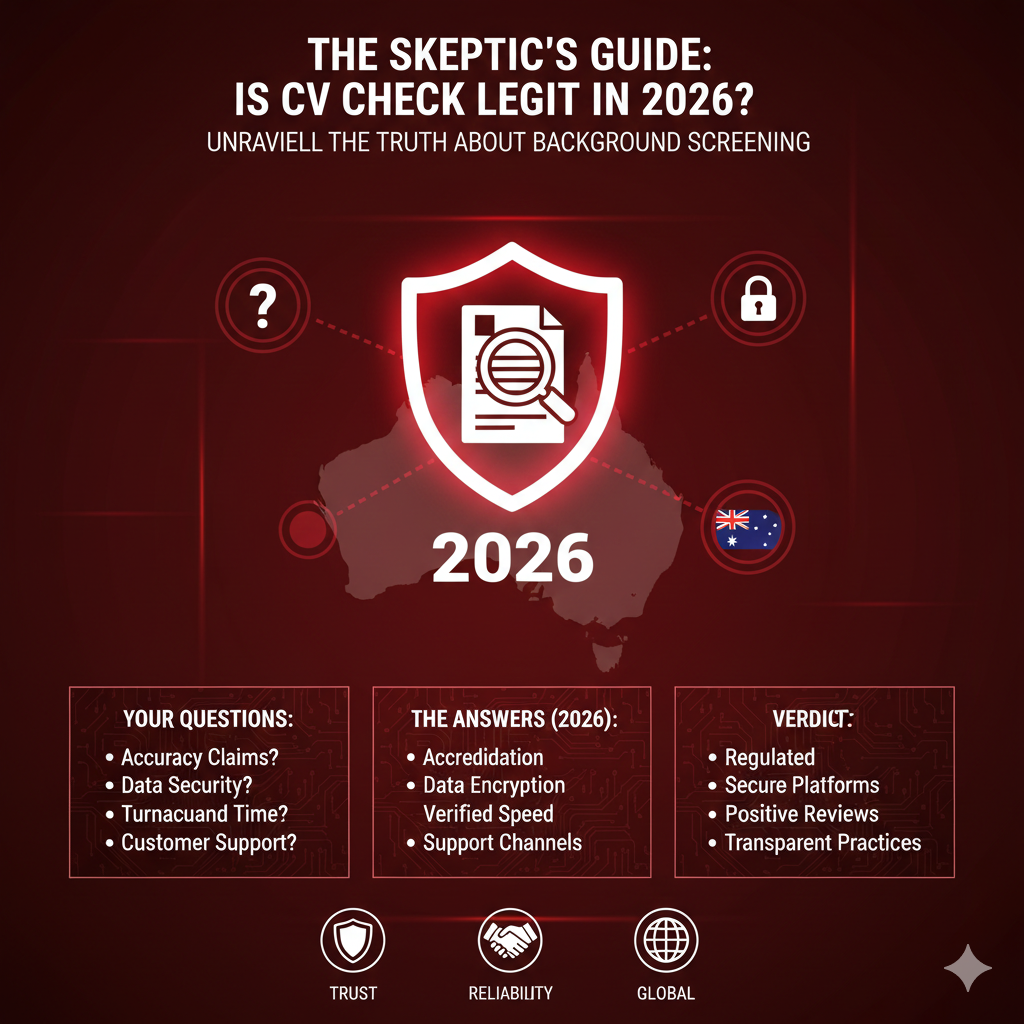A poor hire in today’s workforce can harm your company’s reputation, morale, and even regulatory obligations in addition to lowering productivity. Risk management is therefore becoming a more crucial component of contemporary company. Criminal history verification past through thorough police checks is one of the finest ways to accomplish this.
Implementing comprehensive background checks, including police checks, is essential for mitigating potential risks associated with new hires.
Verification of Criminal History: What Is It?
The process to determine whether an applicant for employment has criminal records that might be related to the position they are applying for is commonly referred to as criminal history verification. In Australia, this typically takes place through a national police check. This process looks for records which may include: Ethics, Pending convictions, etc. Firms assess potential risks and make responsible hiring choices using this information. Assessing warning signs is only one part of it; another is to make sure that company is employing in a legal way.
Criminal background checks involve investigating any criminal activities the employee ever participated in, that might be a potential threat to the workplace or other employees around.
Benefits of Criminal History Verification in Hiring
Reducing Organisational Risk
The major benefit of criminal history verification is that it deters hiring errors. By finding out a candidate’s criminal record, you can decrease the chances that you will recruit an individual who might be a risk to your business or fellow workers.
Thus, there may be some strong legal and moral ramifications if someone with a violent past has been recruited for a position in customer service or even if someone with a fraud record is recruited for an accounting position.
Thorough background checks will minimize the occurrence of hiring individuals with false credentials or who have hidden their criminal records.
Creating a Safer Workplace
The general well-being of employees depends on a safe workplace. People whose criminal histories potentially jeopardize that safety can be found through police background checks. In sectors like healthcare and transportation, this is particularly important.
Employees are key determinants of workplace culture and, therefore, background checks help to filter out certain individuals having an improper behavior track.
Complying with Industry Regulations
Comprehensive regulations compel several companies to conduct criminal checks. Operational licenses may be terminated, fined, or subject to other punishment for breaking certain regulations. Validating your criminal background on a regular basis ensures that you continue to adhere to the rules.
Some industries, like health and finance, require strict adherence to compliance regulations which play a role of background checks in meeting industries. Learn how police checks support compliance in high-risk sectors like aged care and disability services in our NDIS provider police check guide.
When Should Employers Conduct Police Checks?
Time is of the importance. Doing police screenings too late in the employment process could lead to a restart or costly delays. Conducting them too early may lead to discrimination claims if done improperly.
The best times to check a criminal history are as follows:
- Post-interview, pre-offer: After candidates have been shortlisted but before an actual job offer.
- Conditional offer: State in the offer letter that employment is subject to the results of a good background investigation.
- Continuous employment: For industries like healthcare and finance, periodic police inspections may be a part of ongoing compliance.
Rapid Screening provides easy and seamless employment verification check services to help companies arrive at the best hiring decisions.
Rapid Screening provides simple and effortless employment police check services to assist organizations make the best hiring decisions.
How to Integrate Criminal History Verification into Your Hiring Process
1. Define the Role Requirements
Certain roles need the same level of examination. A delivery boy and a financial professional face different risks. Know the inherent constraints of each function when selecting the appropriate level of record check.
The level of pre-employment screening required will vary according to the organisational context and the role being filled.
2. Obtain Applicant Consent
In Australia, before conducting a police check, firms need to get the candidate’s written consent. It’s essential that you define the information’s objective, and intended usage.
Ensure you get a signed consent form from the candidate to contact their references.
3. Use a Trusted Screening Partner
Your checks will be accurate, timely, and compatible with privacy and anti-discrimination regulations if you work with a respectable screening company like Rapid Screening. We take care of everything, from application to results delivery, so you can concentrate on selecting the best candidate. Our ACIC accredited police check services ensure your screening meets Australian compliance standards.
Rapid Screening offers all employment verification services, which include criminal background checks, education verification, VEVO checks, and industry-specific compliance checks.
4. Evaluate the Results Objectively
If a police check uncovers a record, take into consideration the following:
- What relationship does the offense have to the position?
- What was the period of the offense?
- Was it a single occurrence or an ongoing pattern of actions?
- Has the nominee shown any signs of improving?
Although firms must protect their employees and abstain from bias, an equitable, on an individual basis analysis is necessary.
Employers can discover inconsistencies in a candidate’s claims through reference checks, minimizing the risk of hiring.
Legal Considerations and Best Practices
Understand Spent Convictions
In Australia, some crimes may be judged “spent” when a certain amount of time, usually ten years for adults, does involve any criminal activity. Unless permitted by law for particular positions (such working with minors), these do not turn up on police checks.
Firms won’t unfairly penalize potential employees for irrelevant past offenses if they are acquainted with the Spent Convictions Scheme.
Understanding the validity and limitations of police checks in Australia is crucial for compliance.
Adhere to Privacy Laws
Private data found via criminal background checks is safeguarded by the Privacy Act of 1988. It has to be handled with care, used solely for hiring, and disposed of carefully after consumption.
Rapid Screening ensures that all checks are compliant to national and state regulations.
Common Challenges and How to Overcome Them
Delays in Results
Frequently police checks take more than originally scheduled due to data shortages or the need to compare various databases. By ensuring that applications are displayed accurately the first time, using an experienced service as Rapid Screening assists to reduce these delays.
Rapid Screening has an online portal where employers can submit requests for verification promptly and trace the results in real-time. For more industry-specific guidance, visit our healthcare police check best practices guide.
Managing Candidate Reactions
Applications for a background check are not acceptable for each applicant. Convince applicants that checks are an everyday practice that is carried out.
Conclusion
In today’s dynamic employment landscape, effective risk management is no longer optional, it’s essential. Police checks serve as a foundational tool in protecting your workplace from legal, operational, and reputational risks. By verifying a candidate’s criminal history, you not only ensure a safer and more secure working environment but also demonstrate due diligence in compliance with industry regulations.
Whether you’re hiring for roles in healthcare, finance, aged care, or customer service, criminal history verification allows employers to make informed decisions backed by facts, not assumptions. But it’s not just about ticking boxes. It’s about building a workforce that upholds trust, integrity, and professionalism at every level.
Partnering with a trusted provider like Rapid Screening simplifies the process, ensuring accuracy, speed, and full compliance with Australian laws. From pre employment screening to continuous checks for regulated industries, our ACIC accredited services help you avoid costly hiring mistakes and reinforce a culture of safety and accountability.
Make smarter hiring decisions backed by reliable police checks. Choose Rapid Screening as your screening partner and equip your organisation with the tools needed to hire confidently and responsibly.
Frequently Asked Questions (FAQs)
Q) How much does a Rapid Screening Nationally Coordinated Criminal History Check cost?
Employment checks cost $56.90 (including GST), volunteer checks cost $26.95 (including GST), and Australian Federal Police (AFP) checks cost $72.93 (including GST), including mailing.
Q) How long does it take to get the police check results?
Authorities email 70% of findings from Nationally Coordinated Criminal History Checks within 1–2 hours. They mail the certificate via Australia Post, while AFP checks take five to fifteen working days.
Q) What identification is required to apply for a police check?
Volunteer or employment checks demand four types of identity from three distinct categories and a selfie with your photo ID. For AFP checks, 100 points of identity documentation are necessary, but selfies are not. All documents must be clear and readable.
Q) How to receive a police check certificate?
Australia Post ships AFP checks as hard copies, while authorities email certificates for Nationally Coordinated Checks. Depending on where you live, delivery times may change.
Q) Can my police check be processed more quickly?
Even though Rapid Screening scans quickly, incomplete applications or the necessity for manual verification can cause delays. The optimum time to apply is far in advance.
Q) What payment methods are accepted for police checks?
American Express, Mastercard, and Visa are accepted at Rapid Screening. At the time of application, payment is necessary.




